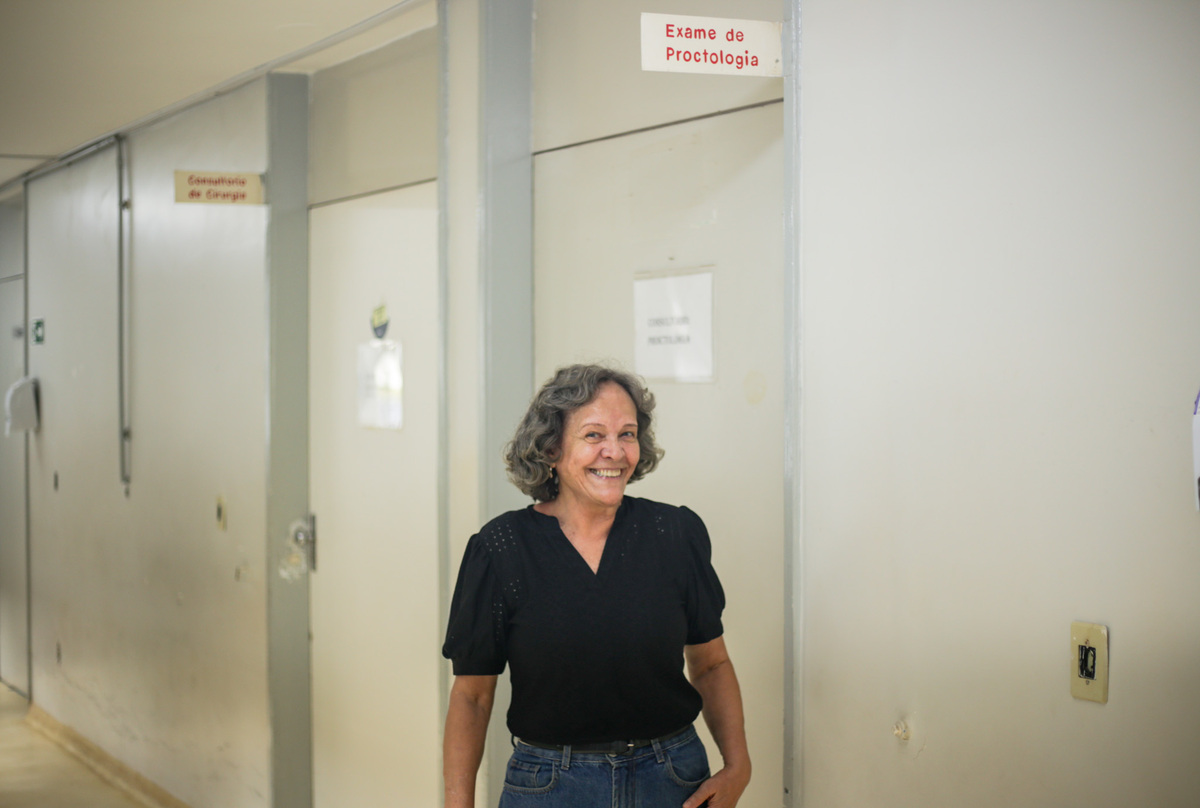Throughout the year, government agencies and civil society organize events aimed at raising awareness about various diseases. In the health calendar, the month of March is given a dark blue color to alert the population about colorectal cancer, which is the third most common type of tumor and the second largest cause of cancer deaths in the world. As the name suggests, the affected area consists of the colon and rectum, located at the end of the large intestine.

Navy Blue March campaign alerts residents about colorectal cancer | Photo: Disclosure/Iges-DF
“Colorectal cancer is preventable. “We know, from global data, that prevention reduces the risk of death in patients diagnosed early by up to 40%,” says the Chairman of the Policy Advisory Committee on Cancer Prevention and Control (Asccan) of the Ministry of Health. (SES-DF), Gustavo Ribas.
Practicing physical activity and maintaining a balanced diet are essential, according to the specialist, to prevent tumors in general. “Physical exercise stimulates immune cells [autoimunes]“Like T lymphocytes, which help the body fight cancer cells,” Ribas explains.
“Prevention reduces the risk of death by up to 40% in patients who are diagnosed early.”
Gustavo Ribas, Head of Cancer Prevention and Control Policy Advisory at SES-DF
Tumors are disordered proliferation of body cells that form an abnormal mass of tissue. Tumors can be classified as benign or malignant. The first type is generally characterized by slow and orderly growth, which presents definite limits. The second, also known as cancer, grows faster, with cells that do not differentiate and invade neighboring tissues.
Possible treatment
Retiree Marilda Santana de Asis, 69 years old, noticed unusual weakness. Sometimes, my legs felt cold and I started losing weight for no apparent reason. “I thought it might have something to do with anemia, or something,” he recalls.

Retiree Marilda Santana recovered from colorectal cancer and invested in healthy habits | Photo: Joalison Noronha/Saúde Agency
She continued to ignore her symptoms until one morning she felt a gland near her ear swell. “I didn't feel anything, but I knew I needed help,” he says. First, search for Basic Health Unit (UBS) 5 in Gamma. From there, she was transferred to Hospital Regional do Gama (HRG) for consultation with a proctologist. In 2013, he underwent a colonoscopy and received the diagnosis.
“When the doctor says it is cancer, it is as if we hear that we are dying,” says the retiree. But the initial fear quickly dissipated. Within a few days, Marilda underwent uneventful surgery at HRG. After that, chemotherapy was started under the supervision of specialists from the Hospital de Besse (HBDF), a reference center for cancer treatment. Without having to leave the house, she took two pills every 15 days, for a total of eight cycles that lasted six months.
Today, as she is about to turn 70, Marilda attributes her change in habits to this experience – she exercises every morning; Since 2013, the disease has not recurred.

Exercising physical activity and maintaining a balanced diet can prevent tumors Photography: Brenno Esaki/Agência Saúde
symptoms
Ribas explains that the manifestations associated with the disease depend on its size, severity, and frequency. “In general, the presence of some specific signs guides us to investigate if colorectal cancer is suspected,” he explains. Symptoms include blood in the stool, cramps in different parts of the abdomen or throughout the abdomen, pain when passing urine, diarrhea or constipation, changes in appetite and weight loss for no apparent reason.
Vulnerable groups
The main risk factors for colorectal cancer are being over the age of 50, lack of physical activity, excess body fat (overweight and obesity), alcohol use, smoking, and poor eating habits. Low consumption of fibre, found in vegetables, legumes and fruits, and high intake of processed meats, known as sausages (sausages, bacon, ham and turkey breast, among others), also increase the chance of developing the disease. Eating too much red meat – more than 500 grams per week – is another risk factor.
The probability is also higher in patients who have a family history of colorectal cancer or who have already had bowel, ovarian, uterine or breast cancer. People who have had inflammatory bowel syndromes (such as chronic ulcerative colitis and Crohn's disease) for more than ten years, or who have certain genetic diseases, such as familial adenomatous polyposis (FAP) and hereditary non-polyposis colorectal cancer, are also at greater risk. HNPCC).
Another risk factor is occupational exposure to ionizing radiation (such as X-rays and gamma rays). For example, specialists in medicine, forensics and industrial radiology must be more careful when carrying out their activities.
*With information from the Ministry of Health

“Wannabe internet buff. Future teen idol. Hardcore zombie guru. Gamer. Avid creator. Entrepreneur. Bacon ninja.”
